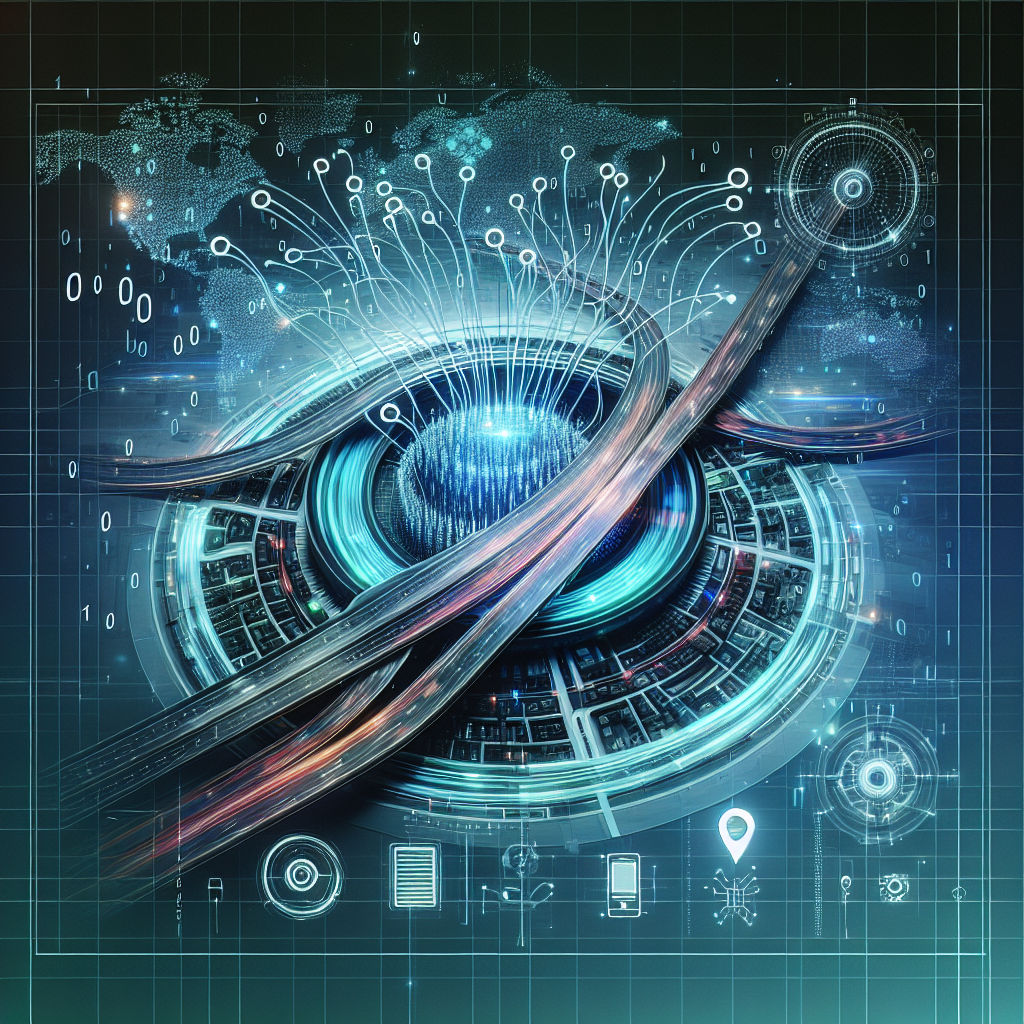The Future of AI-Powered Navigation Systems in Transportation
Artificial Intelligence (AI) has revolutionized many industries, and transportation is no exception. AI-powered navigation systems are becoming increasingly prevalent in vehicles, helping drivers and transportation companies navigate more efficiently and safely. These systems use machine learning algorithms to analyze data from various sources, such as sensors, cameras, and GPS, to provide real-time information on traffic conditions, road closures, and optimal routes.
As technology continues to advance, the future of AI-powered navigation systems in transportation looks bright. In this article, we will explore the latest trends and developments in this field and discuss the potential impact on the transportation industry.
Trends in AI-Powered Navigation Systems
1. Autonomous Vehicles: One of the most significant trends in AI-powered navigation systems is the development of autonomous vehicles. These vehicles use AI algorithms to navigate without human intervention, making transportation safer and more efficient. Companies like Tesla, Waymo, and Uber are leading the way in developing autonomous vehicles that can navigate complex environments with ease.
2. Predictive Analytics: AI-powered navigation systems are also incorporating predictive analytics to anticipate traffic patterns and road conditions. By analyzing historical data and real-time information, these systems can recommend the best routes to avoid congestion and delays.
3. Personalization: Another trend in AI-powered navigation systems is personalization. These systems can learn from the driver’s preferences and habits to provide tailored recommendations for routes, stops, and destinations. This personalization can enhance the user experience and make navigation more intuitive.
4. Multi-Modal Transportation: AI-powered navigation systems are also integrating with other modes of transportation, such as public transit, ridesharing, and bike-sharing. By providing seamless connections between different modes of transportation, these systems can offer more comprehensive and efficient travel options for users.
Benefits of AI-Powered Navigation Systems
1. Improved Safety: AI-powered navigation systems can help reduce accidents and improve road safety by providing real-time information on hazards, traffic conditions, and road closures. By alerting drivers to potential dangers and recommending safe routes, these systems can prevent accidents and save lives.
2. Efficiency: AI-powered navigation systems can optimize routes based on real-time data, reducing travel time and fuel consumption. By avoiding traffic congestion and road closures, these systems can help drivers reach their destinations faster and more efficiently.
3. Cost Savings: AI-powered navigation systems can help transportation companies reduce costs by optimizing routes, minimizing fuel consumption, and improving vehicle maintenance. By streamlining operations and improving efficiency, these systems can increase profitability and competitiveness in the market.
4. Environmental Impact: AI-powered navigation systems can also have a positive impact on the environment by reducing emissions and carbon footprints. By optimizing routes and promoting eco-friendly transportation options, these systems can help mitigate the effects of climate change and promote sustainable transportation practices.
FAQs
Q: How accurate are AI-powered navigation systems?
A: AI-powered navigation systems are highly accurate, thanks to the advanced machine learning algorithms that analyze real-time data and provide up-to-date information on traffic conditions, road closures, and optimal routes. These systems can adapt to changing conditions and provide accurate recommendations for drivers to reach their destinations efficiently.
Q: Are AI-powered navigation systems secure?
A: AI-powered navigation systems prioritize security and data privacy to protect users’ information and ensure the integrity of the system. Companies invest in robust security measures to prevent unauthorized access and data breaches, making these systems secure and reliable for users.
Q: How do AI-powered navigation systems benefit transportation companies?
A: AI-powered navigation systems can help transportation companies improve efficiency, reduce costs, and enhance the customer experience. By optimizing routes, minimizing fuel consumption, and providing real-time information on traffic conditions, these systems can streamline operations and increase profitability for transportation companies.
Q: What is the future of AI-powered navigation systems in transportation?
A: The future of AI-powered navigation systems in transportation looks promising, with continued advancements in autonomous vehicles, predictive analytics, personalization, and multi-modal transportation. These systems will continue to revolutionize the transportation industry, making travel safer, more efficient, and environmentally friendly.
In conclusion, AI-powered navigation systems have the potential to transform the way we navigate and travel in the future. With advancements in technology and data analytics, these systems can improve safety, efficiency, and sustainability in transportation, benefiting both drivers and transportation companies. As the industry continues to evolve, we can expect to see more innovative solutions and applications of AI in navigation systems, shaping the future of transportation for years to come.

